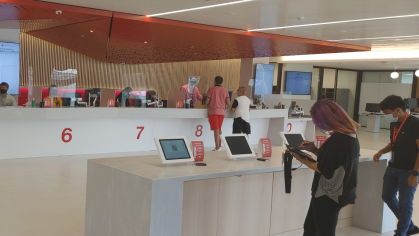2022 Supplier Diversity Survey Results
Rutgers University published findings from a 2022 survey conducted among 454 New Jersey-based diverse suppliers on potential barriers to doing business with the university. Rutgers deployed the survey, in partnership with Chambers of Commerce throughout the state, community-based advocacy organizations, and local businesses in the greater Camden, Newark, and New Brunswick areas, to identify and quantify barriers to entry for small, local, and diverse businesses. To create fairness and acknowledge the impact of the pandemic on revenue and staffing, the survey collected data from a range of periods between 2018 and 2020.
The long-term strategy for the university's supplier diversity initiative calls for the creation of a multi-year plan to build and execute a new operating model that will capitalize on the engagement of internal stakeholders and small, local, and diverse businesses. This approach will incorporate a series of pilot programs that will culminate in a sustainable framework for universitywide implementation.
Highlights from the survey include:
- 53% of survey respondents self-identified as being at least 51% owned managed and/or operated by women and Black/African American owners
- 32% of survey respondents' primary line of business is professional services such as accounting, legal services, construction management, information technology, and consulting
- 45% of survey respondents represent well-established organizations with 20 or more years in business
- 56% of companies that completed the survey are micro-enterprises, employing 10 or fewer people on staff
- 59% of the suppliers that completed the survey reported either decreased or significantly decreased revenue as a result of the COVID-19 pandemic
- More than half of the suppliers reported that the two most significant barriers to entry are a lack of relationships with university staff (53%) and competing with large companies (52%)
The Supplier Diversity Program Advisory Board acknowledges the barriers to entry faced by small, local, and diverse NJ-based businesses. The university will assess the survey results in tandem with a forthcoming disparity study to quantify gaps and opportunities for improvement.


